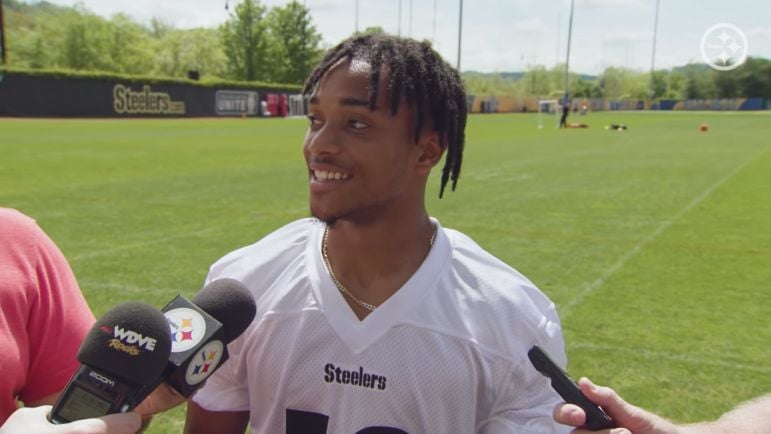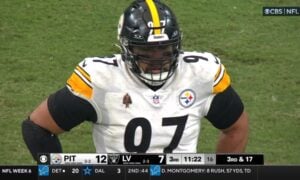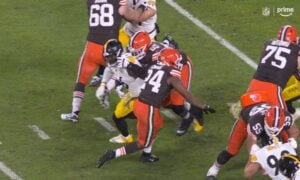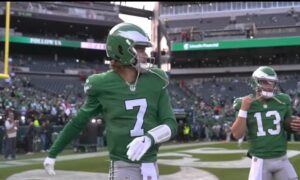Certain players come ingrained within them certain narratives that are simply difficult to avoid talking about. Connor Heyward, for example, is the younger brother of Cameron Heyward. Calvin Austin III is short and small for a wide receiver. These are demonstrable facts that define how these individuals as athletes are viewed.
But the good news is that players can always rewrite their narratives based on what they do on the field. Austin is never going to be tall, but he can play ‘taller’, as they say, and he’s actually made a career of that at the college level.
It’s not just the vertical, but the horizontal, as well—more specifically, when a defender puts a hit on you and leaves you horizontal on the ground. In Austin’s case, as he told reporters last week during rookie minicamp, he prides himself on his toughness.
“I took plenty of big hits”, he said following one practice session after being asked, “but the best thing is popping up right after and flexing on ‘em. That’s what I like to do, after you make that catch, get that big hit, get up and flex on ‘em a little bit”.
How exactly does a 5’8” wide receiver who weighs less than a small punter survive such hits—even feed off of them? Well, it actually comes in part from his playing background, he suggested earlier during his media session. He hasn’t spent all of his time running routes, after all.
“I was a starting DB and I was 5’4”, 130 pounds”, he said, in ninth grade. “I definitely held my own, but I did get beat some. But just from that, I think starting there, having to tackle bigger running backs, bigger receivers, it just kind of helped my toughness”.
He also added that he was a freshman starting on a varsity team, only adding to the size disparity between himself and those he was responsible for playing against. That’s one way to learn how to take a hit, I suppose.
Now, with that being said, he’s still 162 pounds, or around there, his official listed weight. His body is always going to be 162 pounds to the defenders he plays against. He’s still going to struggle physically at the line of scrimmage against bigger cornerbacks—if they can get their hands on him.
Which is where his speed comes in handy. Of course he’s going to lose some reps in the NFL because of his size when he can’t get off the line. But that happens to everybody, and he has enough of a skillset and repertoire, enough counters to whatever a defender can throw at him, to have a real chance of thriving as an open target at the NFL level.








